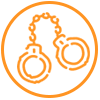About Us
About Us
PLD is a legal resource group pursuing the realisation of social justice and equality for women. We work in contexts of marginalisation shaped by gender, sexuality, caste, culture and poverty, to take into account the intersecting systems of oppression that diminish recognition and access to rights. We pursue our mission through three mutually complementary strategies – of developing capacities, creating evidence-based knowledge and information resources, alongside influencing engaging with social policy at domestic and global levels.
Phase 1: Applying law in community action
The first phase of PLD’s work (1998-2002) was about facilitating, understanding and learning what it means to apply law and rights in community action. Over six years we forged partnerships between community groups working on themes as diverse as violence against women, land rights, natural resources, and child rights across the country, with locally based lawyers. Each of these partnerships carried out non-litigation law based strategies in community action to advance rights, and in the course of doing so, charted the landscape of alternative field based practices of law. This significant learning phase helped identify gender and rights dimensions across diverse themes and sites of marginalisation, paving the way for programmatic focus on women’s rights.
Phase 2: Focusing on Women’s Rights
From 2003 to 2012, PLD’s capacity development initiatives expanded to respond to the needs of the women’s rights sector. Pedagogy and curriculum were customised to respond to South Asian, national and grassroots contexts, and to the needs of stakeholders as diverse as government, community workers and rights activists, on themes ranging from CEDAW to access to justice in relation to violence, family life and sexuality, to negotiating rights within plural systems. In this period, PLD’s action research through collaborative processes of evidence gathering and dialogue combined with legal research and comparative studies significantly shifted feminist discourses and policy advocacy. Publications calling to address socio-legal challenges faced by women in de facto conjugal relationships, women targeted as witches, and seeking acknowledgement of women’s rights contestations within cultural and customary fields, are some key contributions.
PLD’s work within movements and coalitions, as part of ‘Voices Against 377’, for decriminalisation of homosexuality, its contribution to the law reform campaigns relating to child sexual abuse, sexual violence and sexual harassment at the workplace, as well as monitoring of human rights obligations to feed civil society processes relating to CEDAW and the Universal Periodic Reviews – establish a vital connection with activism and multi-stakeholder monitoring processes.
And now:
The emphasis on gender and sexuality sharpened against the backdrop of our efforts to criminalise sexual violence, while also seeking de-criminalisation of homosexuality, sex work, and non-normative intimate relationships. In the aftermath of the law reforms on sexual offences in 2013, and the subsequent campaigns, amendments escalating punishments, PLD shifted emphasis towards monitoring implementation of the laws, identifying gaps in restorative and therapeutic aspects of justice while questioning over-reliance on deterrence model of justice. Evidence collection, research, resource materials on these issues are areas of continuing investment.
PLD ensures its resources are comprehensible and accessible to a cross section of users. All publications and posters are freely downloadable and adhere to the creative commons license. In 2013, PLD commenced creation of an online Feminist Law Archives to chronicle the engagement of the women’s movement with the law in India. Hosted on its website, the archive curates digitised memorandums, unpublished or difficult to access documents and materials from the women’s movement on various themes.
PLD’s technical assistance expanded exponentially, in equipping state governments, educational institutions, municipal schools, private and civil society agencies to implement the law on workplace sexual harassment. Towards exploring transformative approaches, PLD initiates dialogues to nuance discourses on sexuality and harassment, develop consent culture – while working towards decriminalisation of adolescent sexuality, non-punitive approaches to addressing early marriage, and spotlighting restorative elements of justice to address victimhood.





